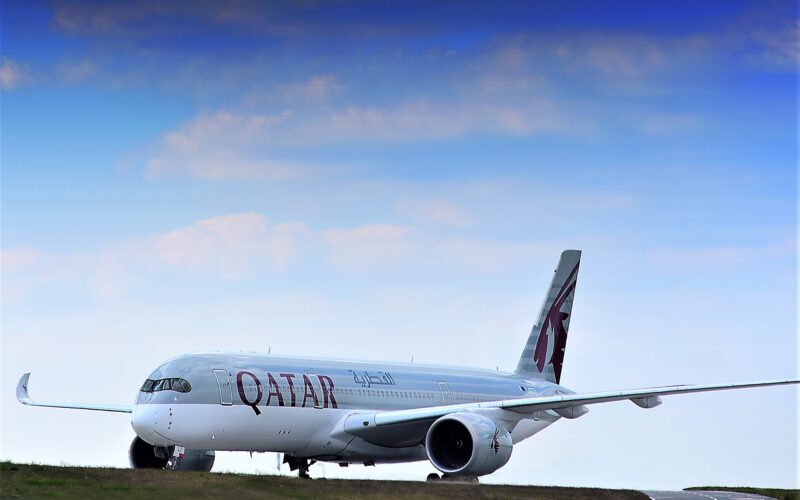Airbus changes A350 design amid $2 billion dispute with Qatar Airways

New reports suggest that European aerospace manufacturer Airbus has implemented design changes on rear-section parts of A350 wide-body passenger aircraft. The work is being carried out amid an ongoing $2 billion dispute between the manufacturer and the Doha-based airline Qatar Airways over plane surface damage due to supposed design defects.
Airbus confirmed that the expanded copper foil (ECF), a material located between the aircraft fuselage and the paint as protection against lightning strikes, was being replaced by perforated copper foil (PCF) on the new A350s.
“PCF is being used on rear-section parts on aircraft delivered from the end of 2022,” a spokesperson of Airbus revealed to Reuters.
The latest preliminary court hearing took place in London on January 19, 2023.
According to London’s High Court Judge David Waksman, Airbus’ decision to work on the implementation of the new A350 design is “significant” to the ongoing case.
Long-running battle
The long-running dispute between Qatar Airways and Airbus over the surface erosion on A350 jets and related safety concerns first ignited in late 2021. At that time, the air carrier was looking to receive around $600 million in compensation for premature fuselage surface deterioration on its A350s. The airline focused on the flaking paint, which exposed corrosion and gaps in a sub-layer of metallic lightning protection on the aircraft.
In response to the dispute, Airbus attempted to terminate a separate delivery agreement involving 50 A321neo jets that were due to be delivered to the Doha-based carrier.
However, the surface erosion case was then brought to court.
In April 2022, the judge ruled in favor of Airbus, authorizing the manufacturer not to fulfill its contractual obligation to deliver a different order of A321neo jets to Qatar.
As Qatar Airways had refused to take delivery of some of the A350s, the court also allowed the plane maker to sell the aircraft to other Airbus customers, arguing that the European Union Aviation Safety Agency (EASA) had ensured that they were safe to fly.
The EASA said it had found no evidence that paint or surface erosion on the A350 jets poses a safety concern.
In May 2022, The High Court in London ruled that the dispute would be brought to trial in June 2023 under an expedited process.
